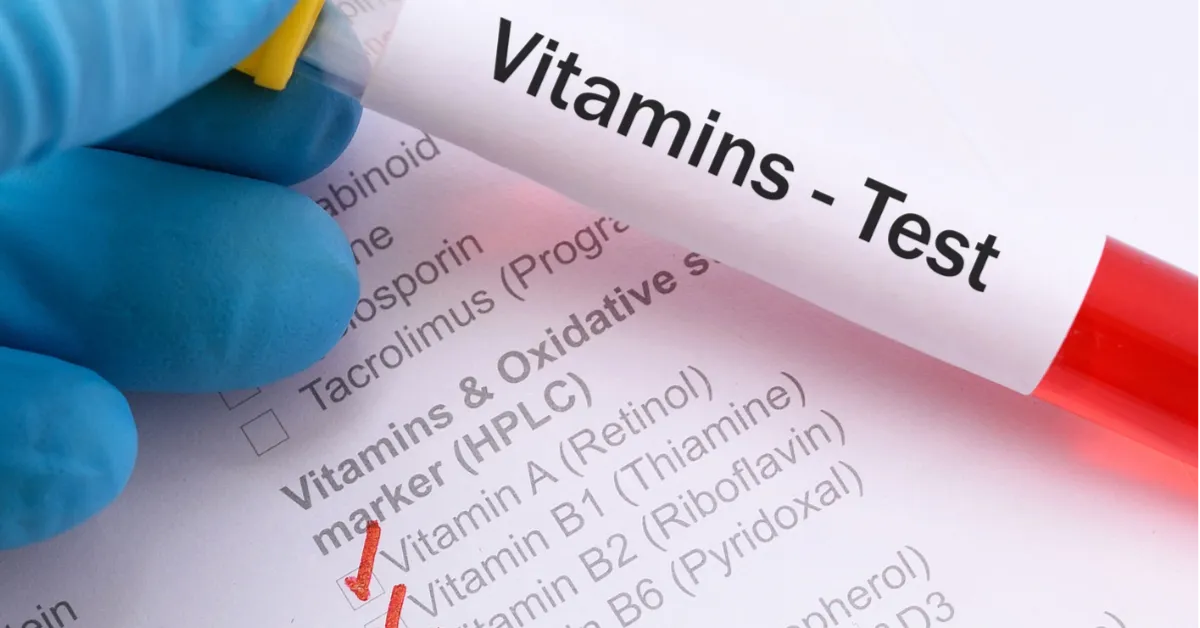ASTM E1981 Vitamin B-Complex Profiling in Nutritional Supplements
The ASTM E1981 standard is a widely recognized method for profiling the vitamin B-complex content in nutritional supplements. This service ensures that manufacturers and suppliers can meet stringent quality standards, regulatory requirements, and consumer expectations regarding the accurate representation of vitamins like thiamin (B1), riboflavin (B2), niacinamide (niacin), pantothenic acid (B5), pyridoxine hydrochloride (B6), biotin, folate (folic acid or L-methylfolate), cobalamin (B12) in their formulations.
Profiling the vitamin B-complex is critical for ensuring that supplements meet the recommended dietary allowances (RDAs) and are free from any excesses or deficiencies. This service provides detailed reports on the concentration levels of each component, which helps in maintaining product quality and consistency across different batches. The results also support regulatory compliance with international standards such as EU regulations, FDA guidelines, and WHO recommendations.
Our laboratory adheres strictly to ASTM E1981 methodology, ensuring precision and accuracy in our testing process. This includes precise sample preparation techniques that involve dissolving the supplement in an appropriate solvent followed by analysis using high-performance liquid chromatography (HPLC). The HPLC system used is calibrated according to international standards to ensure reliable data.
The service covers a broad range of nutritional supplements, including multivitamins, B-complex tablets, powders, liquids, and gels. By profiling the vitamin B-complex content, we help companies identify any discrepancies between labeled amounts and actual contents. This is particularly important for manufacturers aiming to maintain transparency with their consumers.
Furthermore, this service allows for the detection of potential contamination issues that could arise during manufacturing or storage processes. Contaminants such as heavy metals or other non-nutritional substances can affect both the safety and efficacy of dietary supplements. Regular profiling ensures continuous quality control measures are in place to mitigate these risks.
Our team of experts uses cutting-edge technology and follows strict protocols to ensure accurate results every time. We understand that consistency is key when it comes to maintaining brand reputation and consumer trust, which is why we offer this service as part of our comprehensive suite of analytical testing solutions for food and feed industries.
Scope and Methodology
| Component | Test Method | Calibration Standards |
|---|---|---|
| Vitamin B1 (Thiamin) | HPLC with UV detection | ASTM E1981-20 Standard Practice for Determination of Vitamin B-Complex Content in Nutritional Supplements |
| Vitamin B2 (Riboflavin) | HPLC with UV detection | ASTM E1981-20 Standard Practice for Determination of Vitamin B-Complex Content in Nutritional Supplements |
| Vitamin B3 (Niacinamide) | HPLC with UV detection | ASTM E1981-20 Standard Practice for Determination of Vitamin B-Complex Content in Nutritional Supplements |
Eurolab Advantages
We pride ourselves on providing world-class services backed by extensive experience and cutting-edge technology. At Eurolab, our commitment to excellence is reflected in the quality of work we deliver, which has earned us a reputation as leaders in the field.
- Accreditation from leading bodies such as ISO/IEC 17025
- Use of state-of-the-art HPLC equipment calibrated according to international standards
- Dedicated team of experts with extensive knowledge in vitamin B-complex analysis
- Comprehensive quality management systems ensuring consistent and reliable results
International Acceptance and Recognition
The ASTM E1981 standard is internationally recognized, which means that the results from our vitamin B-complex profiling service are widely accepted by regulatory bodies around the world. This includes organizations like the European Medicines Agency (EMA), U.S. Food and Drug Administration (FDA), and World Health Organization (WHO).
- European Union: Compliance with EU regulations regarding dietary supplements
- United States: Certification for products sold in compliance with FDA guidelines
- Worldwide: Recognized as a benchmark for quality by numerous international standards organizations





